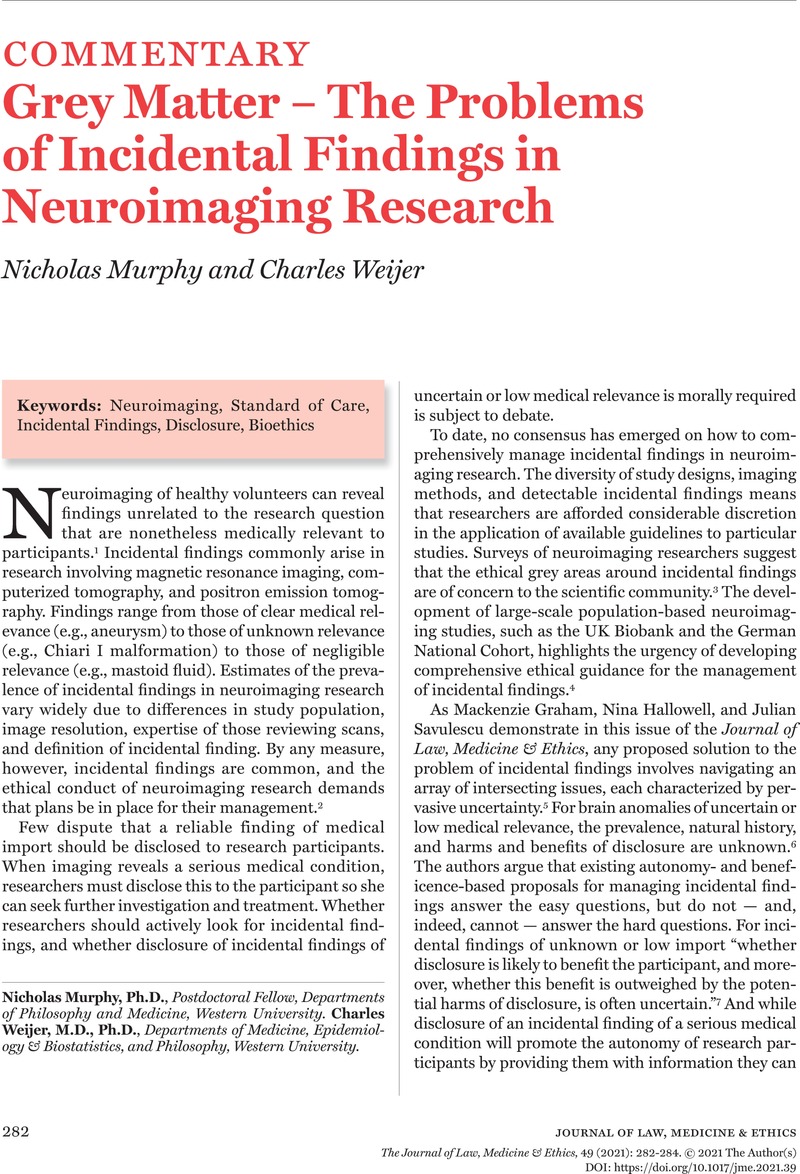Crossref Citations
This article has been cited by the following publications. This list is generated based on data provided by Crossref.
Young, Michael J.
Bodien, Yelena G.
and
Edlow, Brian L.
2022.
Ethical Considerations in Clinical Trials for Disorders of Consciousness.
Brain Sciences,
Vol. 12,
Issue. 2,
p.
211.
Bhaskar, Sonu M. M.
2022.
Incidental findings in brain imaging research: spotlight on ethical considerations.
European Radiology,
Vol. 32,
Issue. 10,
p.
6977.
Murphy, Nicholas
Weijer, Charles
Debicki, Derek
Laforge, Geoffrey
Norton, Loretta
Gofton, Teneille
and
Slessarev, Marat
2023.
Ethics of non-therapeutic research on imminently dying patients in the intensive care unit.
Journal of Medical Ethics,
Vol. 49,
Issue. 5,
p.
311.





